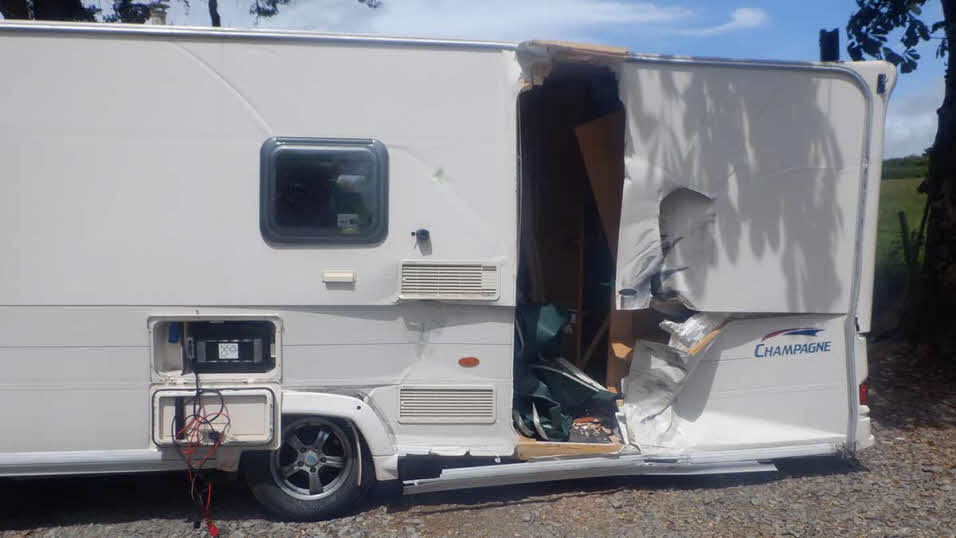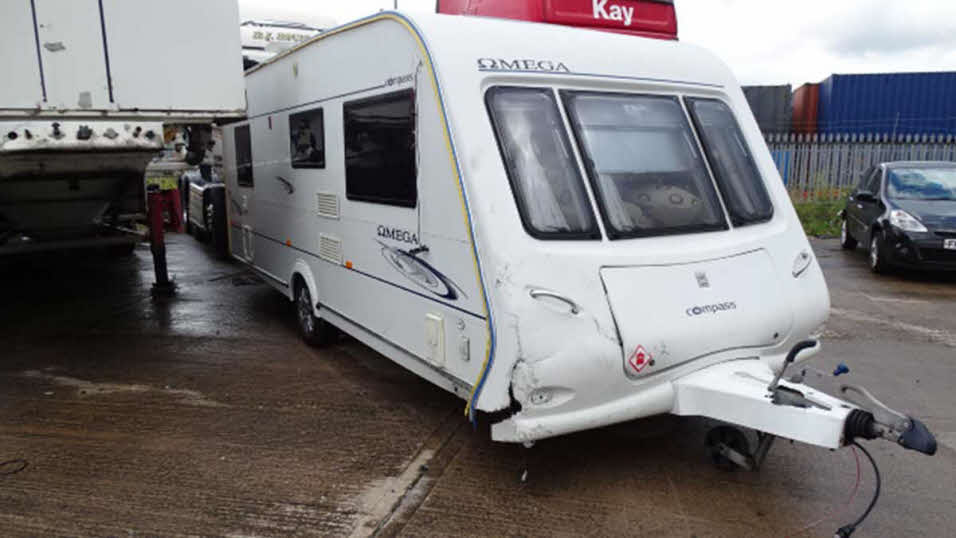Caravan Cover
Protect your caravan, whether you're at home or on holiday with cover designed for your needs.
View cover optionsWe have compiled information and advice on how avoid a snaking claim with your caravan
Although snaking claims are relatively uncommon and have reduced significantly over the years due to anti-snaking devices, an accident of this nature can be extremely serious as well as a major disruption to others on the road.
What do we mean by snaking?
Snaking is when the caravan becomes destabilised and moves around the hitch and is swaying from side to side, similar to the movement of a snake, hence the term.
How is snaking caused?
Snaking can be caused by sudden swerves, driving at high speeds, the passing of larger vehicles, high crosswinds, a tyre blowout or your outfit being overloaded, mainly by nose weight.

We know from our data that most snaking claims occur on caravans that haven’t fitted anti-snaking devices. A surprising discovery from the claims we’ve received is that the vast majority of snaking claims have happened mainly to experienced members (of 12 years plus). Sadly the majority of the caravans were written off due to the extensive damage that occurred.. We tend to see snaking claims where one or more of these factors exist: Speed in excess of 60 mph, travelling downhill, often after overtaking an HGV, poor loading of the caravan particularly in terms of weight distribution and noseweight, poor matching of the caravan to the towcar. Factors such as crosswinds and incorrect tyre pressures don't help, but are rarely the root cause.
How can you prevent having a snaking claim?
Preventing snaking claims starts with good towing practice. This is where the Club can help as we offer two caravan towing courses suitable for both beginners and experienced drivers. Adding mirrors to your vehicle is an essential accessory as they will alert you to approaching vehicles, giving you time to slow down. Ensure that you load your caravan with an evenly distributed weight, as an unevenly loaded caravan is far more likely to sway. Always check the tyre pressure on both the caravan and your towing vehicle before you set off on your journey.

What to do if your caravan starts to snake:
If your caravan starts to snake, try your best to position the caravan on the road in order to create a “safe zone” that will prevent others from overtaking. Slow down gently and as much as possible, making sure that you take your foot off the accelerator and let the caravan fall back into place behind the towing vehicle. Don’t try to steer out of the situation in an attempt to correct the movement. As soon as it’s safe to do so, pull over and activate your hazard warning lights, then try to find out exactly what caused the snaking incident and rectify this before driving off again.
Important information:
We’ve been made aware that some manufacturers are not fitting anti-snaking devices at the moment, due to a lack of parts. It is understood that manufacturers will be looking to retrofit anti-snaking devices to caravans that left the factories without them originally fitted, once they come back into stock. Whatever the situation, we recommend that you get your anti-snaking devices fitted at the earliest opportunity.
We know that you will wish to avoid snaking however if you do have a snaking accident then the Club's Caravan Cover will be there to help if you cover your caravan with us. We will guide you through the claim so that your claim is processed as fast as possible. If you don't have the Club's Caravan Cover then do get a quote from us to see how our Trustpilot 5 star Excellent rated Caravan Cover product compares to your existing cover provider.